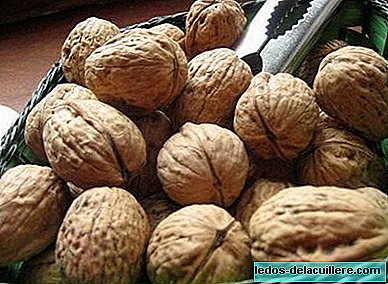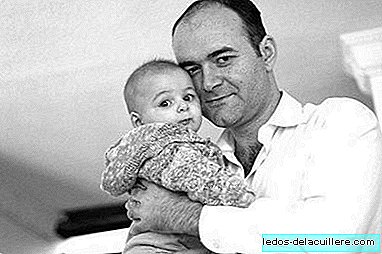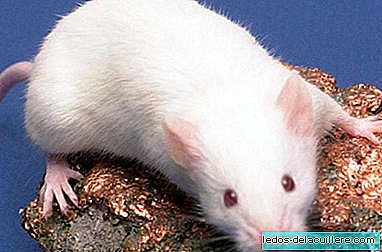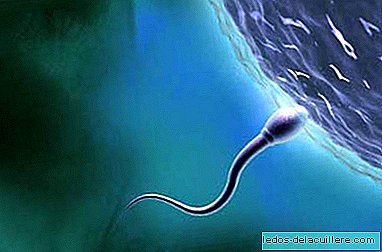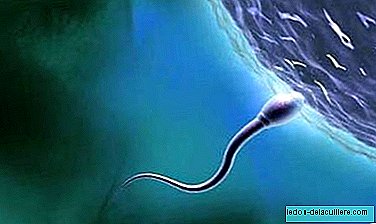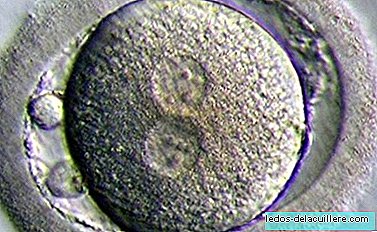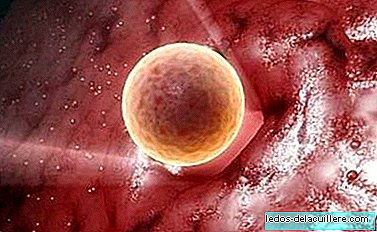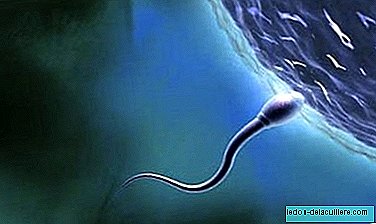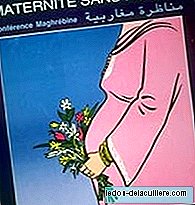The benefits of Omega-3 have not only been proven for pregnancy or for the baby, it can also help men to be parents. A study has shown that eating nuts improves the sperm quality of young men, between 21 and 35 years. Specifically, eating 75 grams of nuts a day improves the vitality, mobility and morphology of sperm in healthy men in that age range, according to an article published in the journal "Biology of Reproduction."
Read MoreFertility
The tendency to have children at increasingly advanced ages can influence the new generations to live longer than the previous ones. One of the keys may be, according to a study published in Proceedings of the National Academy of Sciences (PNAS), that being elderly parents favors having older children.
Read MoreThere are many recommendations on healthy eating habits and leaving aside addictions such as tobacco and alcohol if you want to conceive. However, a new study has revealed that these tips are useless, neither tobacco nor alcohol influence, and what really needs to be avoided are tight underpants that affect man's fertility.
Read MoreApplications for mobile devices do not cease to surprise us, in this case with OvuView, an Android application to control the menstrual cycle. More than just a calendar, the application allows to predict the period, ovulation and fertility period, although for women with irregular cycles it will not be very useful.
Read MoreDo women who work at night or on rotating shifts have less chance of becoming pregnant? According to one study it would be probable, at least they have shown with mice that the circadian rhythm negatively influences fertility. Recall that circadian rhythms (from the Latin circa, which means 'around' and dies, meaning 'day') or biological rhythms are oscillations of biological variables at regular intervals of time, regulated by sunlight and temperature.
Read MoreWhat a strange title, what will vanilla yogurts have to do with male fertility? Well, it seems that in something they can relate. Let's say there are scientific studies that reach increasingly surprising conclusions and this, the truth, has made me smile. Researchers from the Massachusetts Institute of Technology (the famous MIT) found, rather by chance, the apparent relationship between a diet with vanilla-flavored probiotic yogurt and the size of the testicles of their laboratory rats, their fertility and their behavior.
Read MoreA study recently published in the Human Reproduction Magazine points to a possible treatment that could preserve the fertility of children treated for cancer. The work, led by Professor Ralph Brinster and the team of the School of Veterinary Medicine at the University of Pennsylvania, has developed research with animals that have concluded that spermatogonial stem cells, which are present from birth, can be preserved for more than fourteen years and be successfully reimplanted, allowing men who have lost fertility to recover it in adulthood and produce viable sperm.
Read MoreIt is not a novelty that food influences fertility, both in women and men. Specifically related to fat consumption, a recent study states that saturated fats make semen quality worse, while foods rich in omega 3 improve it. On the other hand, antioxidants are considered essential for the good quality of semen, being molecules mainly present in fruits and vegetables capable of retarding and preventing the oxidation of other molecules.
Read MoreOne of the challenges of science may be closer: that women with fertility problems can have their own eggs, healthy, and get pregnant. New research has managed to obtain precursors of human ovules from ovarian stem cells. This is a work by the controversial American researcher Jonathan Tilly, a reproductive biologist at the Massachusetts General Hospital, recently published in the journal Nature Medicine with the title of "Oocyte formation by mitotically active germ cells purified from ovaries of reproductive-age women".
Read MoreJust as in women "the countdown" is clear to be a mother, it is common for men not to pay attention to age. But men also spend years to have children. Upon reaching 40 or 50, the ability to produce sperm decreases, at least in terms of quality.
Read MoreIt seems proven that caffeine reduces the chances of pregnancy in women, although the causes were not known exactly. The explanation could be in the fallopian tubes. According to one study, caffeine reduces female fertility because it reduces the muscular activity of the fallopian tubes, which are responsible for transporting the ovules from the ovaries to the uterus.
Read MoreResearchers from the Universities of Sant Andrew and Edinburgh have recently made public a work that indicates that at 30 years almost 90% of the ovarian reserve of women has already disappeared, leaving only 3% at 40. The A study has been done evaluating the ovarian reserves of 325 European and American women of different ages and one of its most interesting conclusions is that some women are born with two million ovules, while others would have about 35.
Read MoreMale fertility could be reflected in how men have bones due to the action of a hormone, osteocalcin, which induces a mechanism by which they increase the chances of having healthy offspring. At least this is clear in the case of male mice according to a study, and their authors point out that this effect could well occur in humans.
Read MoreSome of our fundamental issues are those of fertility and conception, and in them the ovulation process has a special relevance. We are going to list some curious facts about ovulation, ovules and the fertilization process. The woman, while still in her mother's womb and in the middle of her pregnancy, has an ovum load that is approximately seven million between both ovaries.
Read MoreA few days ago Juan, the first baby in the world born five months ago, was introduced thanks to Embryoscope, a new method that is presented as the future of in vitro fertilization, thanks to which the chances of pregnancy are increased by 20 percent. technique. His parents had been diagnosed with primary infertility of unknown origin and after undergoing three artificial inseminations without success they decided to try IVF (Valencian Institute of Infertility), where they had started working with Embryoscope.
Read MoreThe French Government has passed a bill to eliminate the anonymity of semen donors, a controversial measure that can reduce donations. The text, which will be debated by the cameras, provides that children born of donor semen can track the identity of their biological father, something that until now was impossible in France.
Read MoreA woman's ability to conceive may be influenced by her blood group, according to recent research in the United States. The study of the Albert Einstein School of Medicine and Yale University took into account data from 560 women with an average age of 35 years who were undergoing fertility treatments.
Read MoreIt seems clear that continuous practice, along with the fertility calendar, is the best method to achieve pregnancy. An Australian study ensures that sexual intercourse or daily ejaculations for seven days increase the level of sperm fertility and reduce the amount of damage and mutations in your DNA.
Read MoreThe chances of having a twin pregnancy through assisted reproduction are much greater than if the pregnancy occurs naturally. In this video we know why so many twin pregnancies in assisted reproduction. The reason is that, after ovarian stimulation processes, patients are often implanted with several embryos because of the possibility that some of them are not viable.
Read MoreIf you are a man, you have considered having a child and you read these lines with your laptop on your knees maybe the chances of conceiving a baby decrease due to this last gesture. A group of Argentine researchers indicates that laptops resting on the legs can affect male fertility, as these cause damage to the mobility and fragmentation of sperm DNA.
Read More

